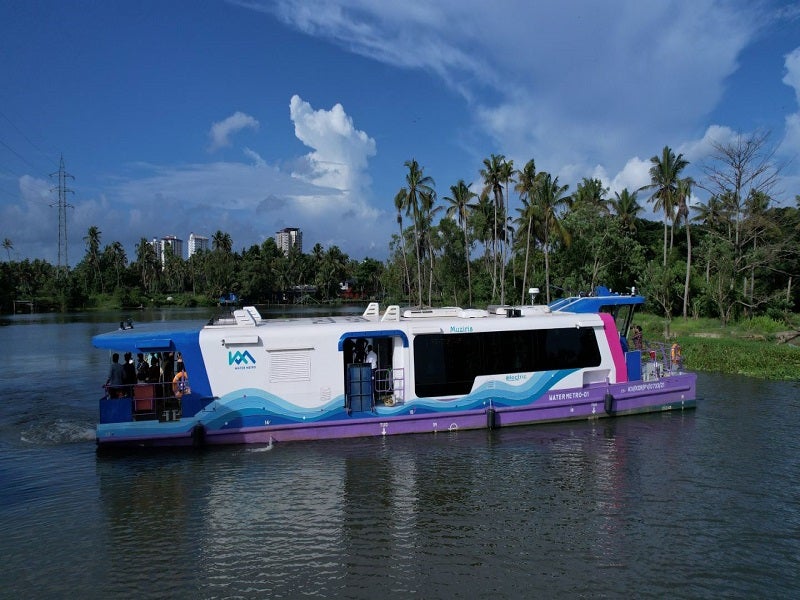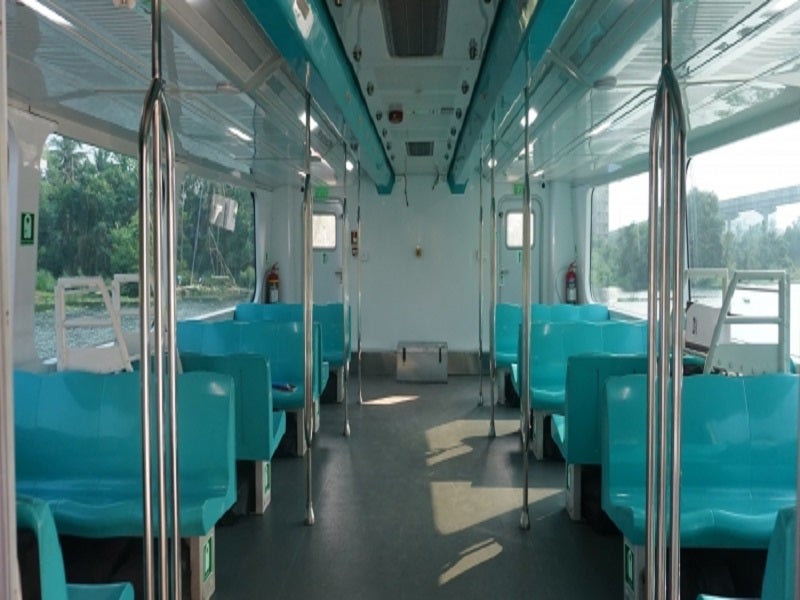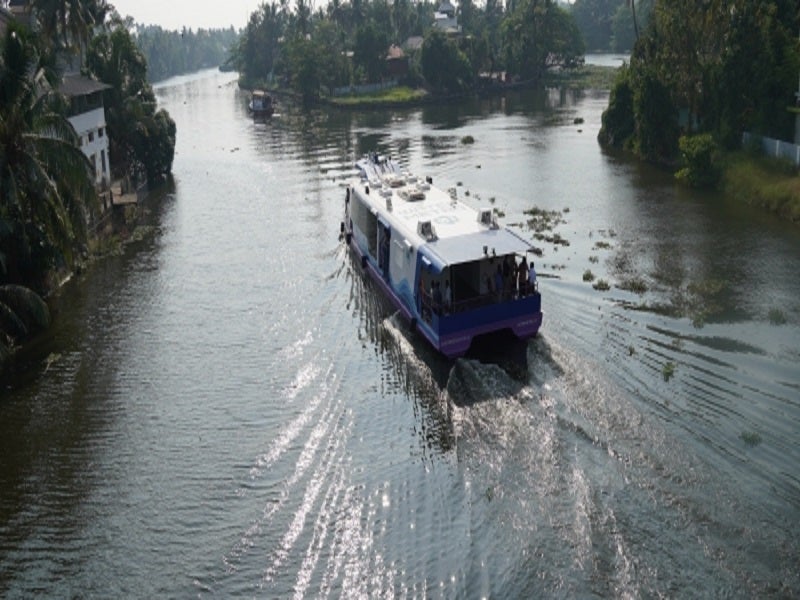The Kochi Water Metro project is a 78km water transport system being developed in the city of Kochi in Kerala, India. It is the world’s first urban water transport project and is planned to be integrated with the Kochi Metro Rail to improve connectivity in the city.
Kochi Water Metro, a special-purpose vehicle, was established to operate and maintain the project. The State Government of Kerala has a 74% interest in the company, while Kochi Metro Rail holds the remaining 26%.
The detailed project report (DPR) for the project was approved in December 2015, while environmental clearance was granted in October 2019.
The project is being implemented in two phases with phase one covering 41km, while phase two will cover 37km.
The first phase of the project was inaugurated in April 2023. The total investment in the project is estimated at Rs10.64bn ($141.4m).
Location of the project
The project is being developed on the backwaters of Kerala that form a network of brackish lagoons and lakes including several interconnected canals, rivers and inlets.
The city of Kochi has waterways stretching over 1,100km, of which 40km are considered navigable by motorboats by the Inland Waterways Authority of India.
Kochi Water Metro project details
The Kochi Water Metro project intends to utilise the waterways in and around the city of Kochi to develop a ferry service infrastructure for public transportation. It will develop an urban mass transport system on 15 identified routes connecting 38 terminals and two boatyards across ten island communities.
The terminals are classified into major, minor and intermediate based on maximum peak hour capacity. Six terminals out of the 38 are expected to be major terminals.
Phase one of the project involves the construction of 16 terminals, while ten terminals are planned to be developed in phase two.
All the terminals will have automated fare collection systems and turnstiles, passenger information systems and CCTV cameras. The terminals are also divided into paid and unpaid areas with the latter housing the ticketing facility, ticket vending machines and station control. Waiting areas and toilets will be in the paid area.
Floating pontoons will be installed on all the terminal waterfronts for the embarkation and disembarkation of passengers and will include facilities for physically challenged and elderly commuters. The pontoons will be connected to the terminal by an aluminium gangway.
The traffic will be monitored from an operating control centre located at the Vytilla hub. The centre will be equipped with an automatic location system that can monitor the position of the vessels.
Route details
The overall line length of the proposed routes is 78km (76.2-line km) with water depth ranging from -2m to -2.50m chart datum (CD) in channels and -1.50m CD in approach and jetty pockets. The route headways will vary from ten minutes to 20 minutes across various routes at peak operational hours.
The proposed routes include High Court to Fort Kochi, Vytilla to Infopark, High Court to Mattancherry, Ernakulam to Moolampilly, High Court to Kumbhalam, Fort Kochi to Mattancherry, Ernakulam to Vypeen, EdaKochi to Vytilla, EdaKochi to Vypeen, Moolampilly to Cheranalloor, Cheranalloor to Varapuzha, Moolampilly to Njarackal, Moolampilly to Thundathumkadavu, Njarackal to High Court and Pizhala to Amritha Hospital.
Navigational and night navigational assistance will be installed throughout the routes, including weed and floating waste management. The majority of the routes are already in use and will not require dredging. Approaches from the navigational channel to terminal areas will constitute the main part of the dredging and are estimated to be in the range of 0.65 million cubic metres.
Electric ferries on Kochi Water Metro
A total of 78 zero-emission electric ferries will be deployed for the water metro, out of which 23 will have a seating capacity of 100 passengers and the remaining 55 will have a capacity of 50. The ferries are 24m long and are equipped with modern amenities such as air conditioning, Wi-Fi and CCTV cameras.
The first ferry was delivered in January 2022. Eight ferries are currently in operation as part of the first phase of the project. Additionally, four rescue/workshop vessels will be available to support the fleet for emergency and maintenance services.
The vessels will feature an aluminium catamaran hull design with twin screw propulsion and will be able to run on lithium-titanium oxide-based batteries as well as diesel fuel. The boats will operate at a draft of 0.9m and be able to achieve a speed of 8kt on electric power and 10kt on diesel.
The project also involves the installation of mass charging stations that can charge the batteries fully in less than 15 minutes.
Financing of the project
The project is being financed under the Indo-German Financial Cooperation with a long-term loan agreement of Rs5.79bn ($70.75m).
The funds were procured through the German funding agency Kreditanstault fur Weideraufbou.
Contractors involved
Kochi Metro Rail awarded the contract for the construction of 23 vessels for the project to Cochin Shipyard, a shipbuilding company, in October 2019.
In December 2020, Cochin Shipyard contracted Siemens, a technology company, to supply electric propulsion drive trains as well as integrated battery and vessel automation technologies for the vessels.
Echandia, an energy storage solutions provider, partnered with Siemens to develop electric propulsion systems for the vessels.
The contract for the construction of three terminals as part of phase one of the project was awarded to Marymatha Infrastructure, a construction company, in May 2019.
A consortium of AECOM, Urban Mass Transit Company (UMTC) and Zebec Marine was appointed as the general consultant for the project in June 2017. AECOM is an infrastructure consulting firm, UMTC is an urban transport consultancy and Zebec Marine is a marine consultancy services provider.
UMTC also prepared the DPR for the project, while India-based environmental consultancy Building Environment was responsible for the environmental and social aspects of the DPR.
WAPCOS, a state-owned consultancy provider, prepared the environmental impact assessment report for the Kochi Water Metro project.






